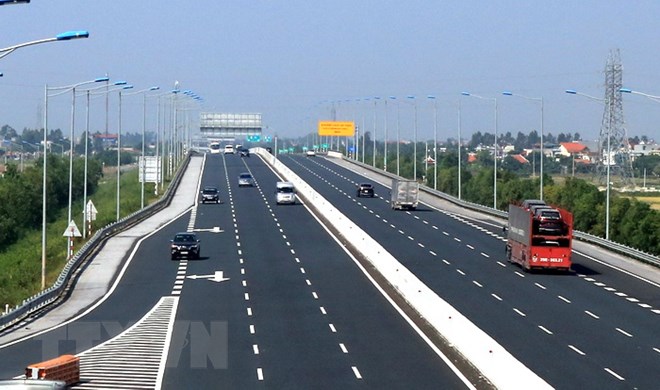According to Ministry of Transport, the industry has been seeking FDI into transportation projects in the form of joint ventures and public-private partnerships in early stages. Many projects have been thoroughly researched but not implemented including Dau Giay – Phan Thiet highway under PPP, Hanoi 3rd Ring road by Daewoo (South Korea) and Unico (USA), and Noi Bai International Airport under joint venture project in the early 90s.
Deputy Minister of Transport, Nguyen Ngoc Dong, shared that, despite FDI attracting policies that have long been carried out, with a list of proposed investments, there are not many successful FDI projects in the field of transportation. “There are many reasons leading to this. But the main one is that transport infrastructure often requires large capital in exchange for a limited financial efficiency. Adding to that is an inadequate legal document system, coupled with the lack of appropriate investment promoting policy, which have held back investors”, Mr. Nguyen Ngoc Dong said. However, the Deputy Minister believed that a more profound reason preventing foreign investors from having appeal to Vietnam’s transportation projects is our lack of a risks sharing mechanism between the state and investors, which corresponds inversely to international standards.

Source: Huy Hung (Vietnam News Agency)
Other fields including roads, maritime, and railway don’t appear much better. Although there has been a number of foreign businesses and investors expressing their interests in cooperating with Vietnam in these areas, none seems to be implemented.
Explaining the situation, a representative from the Vietnam Railways revealed that the rails industry market is still narrow, exporting ability is limited, domestic industrial capacity for railway is weak, and importantly, supporting policies from the State is lacking.
For sectors like inland waterways and aviation, attracting FDI is extremely difficult. Building airports requires highly specialized technology and large capital which results in stricter conditions for foreign investments. For inland waterways, there is only a single Belgian company intending to invest in a southern river port.
The Ministry of Transport claimed that the seaport has been the most attractive to FDI out of all transportation sectors, because of its ability to easily control revenue. Deputy Minister of Transport Nguyen Ngoc Dong evaluated that the support of big corporations, such as Hutchison, PSA, DP World, SSA, Maersk A/S, and CMA – CGM, in the fields of transportation and seaport management with regards to seaport joint ventures (especially the Cai Mep – Thi Vai port complex) has change the face of the Vietnam seaport.
Besides seaport, logistics is another bright star in drawing FDI into transportation. The participation of foreign investors from Japan, Korea, Denmark, and more, in large logistics joint ventures is one of the key factors helping increase the Vietnamese Logistics Performance Index to 39/160 countries in 2018.
Experts claim that FDI into transportation will leverage capital, enhance management efficiency, open access to international market, and transfer technology. The 2016-2020 period witnesses transport infrastructure’s required capital reaching over 42 billion USD, of which 40% is from FDI. However, current state budget is restricted and ODA is also tightened. Therefore, FDI and socialization of investments are considered main leverages to achieve infrastructural goals, specifically the Eastern North-South highway, Long Thanh International Airport, High-speed North-South Railway, and other high profile projects.
Deputy Minister of Transport Nguyen Ngoc Dong suggested that the government should further improve the legal framework for PPP investment type. Laws on PPP investments need to be submitted to the National Assembly for consideration and implementation, to ensure transparency, publicity, and international standards.
Ministry of Transport requested a study of international laws and practices to create our own risks sharing mechanism, particularly the development of State support funds to assist PPP investments, that is in accordance with government’s budget management policy.
In addition, the Ministry also proposed that the Government push administrative reform, facilitate FDI activities in Vietnam, and increase accountability of state agencies in attracting and managing FDI projects.


















